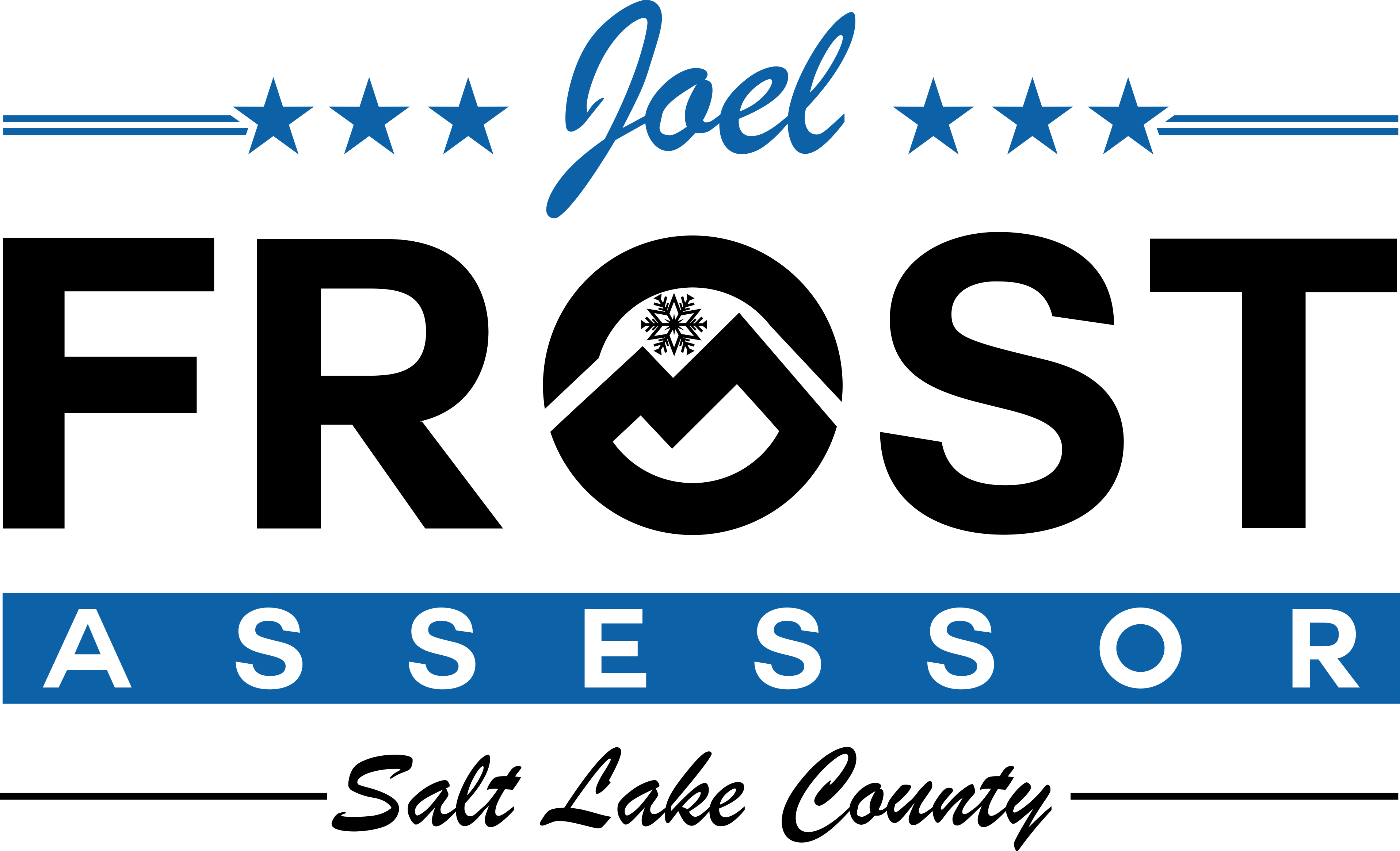Meet Joel
I’m Joel Frost, a Utah native running for Salt Lake County Assessor. Utah has been my home my entire life, and I currently live in Sandy with my wife and children. Besides my family, I’m deeply involved in the community, serving on two citizen-led committees for Sandy City (CDBG Committee and the General Plan Steering Committee) and two committees for Salt Lake Habitat For Humanity (the Family Services Committee and the Loan Services Committee)
I own and manage two successful businesses here in Salt Lake County, and I believe my private sector experience equips me to address the current challenges within the Assessor’s office. One key area demanding attention is the need for fair property assessments. As a real estate professional, I understand the intricacies of property valuation through twenty years of experience as a residential appraiser and real estate agent. I have served on the UAA board (Utah Association of Appraisers) as well as UTCAP (Utah Coalition of Appraisal Professionals). I am an instructor for a wide range of real estate valuation topics and also currently teach regular classes at Olympus, Taylorsville and Jordan High Schools, as well as the Granite Technical Institute.
To tackle fairness in property assessments, I plan to reform the process for Salt Lake County property owners to challenge their assessments, as well as address underlying fairness issues due to current practices that have led to some lower-income property owners paying more than their fair share of property taxes. Transparency and accessibility will be at the forefront, ensuring that every property owner has a fair avenue to voice concerns and seek resolution.
Moreover, the Assessor’s office needs a technological facelift. Leveraging my private sector expertise, I plan to address current technology issues to streamline operations, enhance accuracy, and better serve the residents of Salt Lake County. It’s time to bring efficiency and fairness to the forefront of the Assessor’s office, bridging the gap between private sector know-how and public service.
FAQ
My Agenda Is You And What Matters To You And Your Family
Join our newsletter
Stay informed! Sign up for updates on my campaign’s progress toward the Salt Lake County Assessor seat. Join the newsletter!
